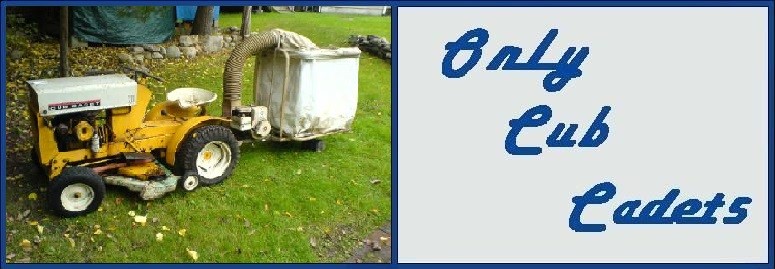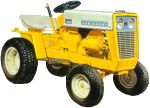
 |
PLEASE PATRONIZE OUR SPONSORS!






|
|||||||
 |
|
|
Thread Tools | Display Modes |
|
#11
|
||||
|
||||
|
Quote:
3.141 x .007 piston clearance =.021991 ring gap, yep figgers right. and 3.141 x .003 clearance =.0094. ring gap. if yall gonna insist on .007 piss ton clearance yall gonna git a larger ring gap. @ this point run what ya got, no other options, it might have a little piston rattle.  Only udder real option, is custom file a set of ,010 oversize rings to .010 end clearance. wouldn't be the first time that is done. I just carefully use a file backed with 50 years of experience. Or one could use a piston ring filer ( google it) FWIW: it only takes a few file strokes, then check them, very easy to go too much and you got what clearance you have now, or more. 
|
|
#12
|
||||
|
||||
|
That’s a good idea! I’ll have to think on that’n.
What I don’t understand is… .007” is the minimum clearance that Kohler calls for! And yet, by the math you posted, that leads to more ring gap than they call for right there. Makes no sense to me. Maybe the Kohler engineers were doing a bit of  when they wrote the rebuild manuals? when they wrote the rebuild manuals?  I should add that I very much appreciate all the advice y’all have given me over the last 9 months. It’s been a good learning experience, fer sure 
__________________
102 
|
|
#13
|
||||
|
||||
|
Only thing I can think of is the old pistons expanded more than modern aftermarket pistons.
Back in the early days ( like pre WW2) or earlier, pistons were cast iron with a different clearance requirement. Then engines went to aluminum pistons, still later years pistons were cam ground, in as much as being larger in skirt diameter than when measured below the wrist pin area. Best I can do as far as theory. FWIW: they don't recommend filing a 3 piece oil ring style ( 2 scrapers and an expander) Single piece cast iron rings can be custom fitted. Hope this helps. Edit: also there are forged pistons and cast pistons, forged (high performance) pistons need a couple of tho' more clearance than forged. But I believe kohler pistons are cast, not forged. A forged piston will have some rattle till it warms up. All irrelevant in this case I guess. |
|
#14
|
||||
|
||||
|
Quote:
If you went with a ring gap of less then 0.009" then the rings would expand closing the gap and pushing the outer edges of the rings into the sidewall of the cylinder causing excessive wear. Similarly the piston needs room to expand, but we can't change the size of the piston so we adjust the cylinder.
__________________
128 X 2, 129, 149, 1450 x 2 |
|
#15
|
||||
|
||||
|
That all makes sense, thanks guys. I am sure these engines do run hot.
Just seems very odd that an in-spec piston clearance would result in an out-of-spec ring gap. Unless the rings themselves are out of whack.
__________________
102 
|
|
#16
|
||||
|
||||
|
Well I got the rings in from iSaveTractors. Ring gap actually increased to 26 thousandths or so. Hmf.
Figuring on just running what I had. I have a feeling it will work fine, and I’m not in the mood for further dinkin’ around. Just want to putt putt around the yard already 
__________________
102 
|
|
#17
|
||||
|
||||
|
A lot of quality engines produced pistons of Standard, .003,010,.020,.030 etc.
The Std and .003 oversize pistons used standard ring sets sometimes. Yes, some manufactures would sell .003 oversize rings, usually aftermarket sellers, but not always, and the demand for these . The .003 sizes just disappeared over the years. In the 50's they were available, that is 2 generations ago. They would state "for worn bores that are still within specks" but would caution to check end gap. in today's world very few re-builders are around and they just go to .010. or more oversize because it is less costly/easier. Times change, it is a throw away world. If a customer had a cylinder that was in a nearly new engine that was scuffed or scratched for various reasons it was common to lightly hone it and put in a .003 oversize piston/ring set. easy peasy warranty repair. those days are long gone. So a .003 oversize bore would result in approx. 0.0095 additional ring gap. I don't see a problem using the lesser of ring gap clearance of rings you have. In the big picture of things, maybe many many hours of operating time it might consume some oil than a tight fitted ring would not. I'm betting you will never see it live to that point, maybe your Gr children will. It is not like this engine is operating a irrigation pump or a lighting plant, used on a daily basis.  Just my take. |
|
#18
|
||||
|
||||
|
I agree George. Thanks for the history, and the reassurance
 Hopefully will have a first start video and some rebuild pictures for you guys soon.
__________________
102 
|
|
#19
|
|||
|
|||
|
Something here don't make sense to me. You were questioned about running a new piston in a used/worn bore.
You came back and said the block was bored/honed. How much was it bored? You have to use the size piston that goes with the overbore. So if it was bored I'd guess it was at least 0.010. means that you can't use a std bore piston. If everything else is in fact OK I wouldn't worry about an extra thou or 2 on ring end gap of all the machine work is where it should be. Air cooled engines do tend to run a little bit more piston to bore clearance than water cooled ones. And 1 more thought/ I have had engines that were borderline on needing a bore or not.... Kohler used to offer a 0.003 over piston, meant to be used with a STD size ring pack. WHEN YOU CAN FIND them (they have not been made in ages, and are getting scarce) and IF your engine can be honed and maintain a non tapered/non egg shaped bore, then if consider setting piston/bore clearance as you are after. But otherwise no. And if you use the std rings on one of those NOS/OEM 0.003 pistons then yeah your ring end gap maybe a thou or 2 over "expected". |
|
#20
|
||||
|
||||
|
Quote:
|
 |
|
|
Cub Cadet is a premium line of outdoor power equipment, established in 1961 as part of International Harvester. During the 1960s, IH initiated an entirely new line of lawn and garden equipment aimed at the owners rural homes with large yards and private gardens. There were a wide variety of Cub Cadet branded and after-market attachments available; including mowers, blades, snow blowers, front loaders, plows, carts, etc. Cub Cadet advertising at that time harped on their thorough testing by "boys - acknowledged by many as the world's worst destructive force!". Cub Cadets became known for their dependability and rugged construction.
MTD Products, Inc. of Cleveland, Ohio purchased the Cub Cadet brand from International Harvester in 1981. Cub Cadet was held as a wholly owned subsidiary for many years following this acquisition, which allowed them to operate independently. Recently, MTD has taken a more aggressive role and integrated Cub Cadet into its other lines of power equipment.
This website and forum are not affiliated with or sponsored by MTD Products Inc, which owns the CUB CADET trademarks. It is not an official MTD Products Inc, website, and MTD Products Inc, is not responsible for any of its content. The official MTD Products Inc, website can be found at: http://www.mtdproducts.com. The information and opinions expressed on this website are the responsibility of the website's owner and/or it's members, and do not represent the opinions of MTD Products Inc. IH, INTERNATIONAL HARVESTER are registered trademark of CNH America LLC
All material, images, and graphics from this site are the property of www.onlycubcadets.net. Any unauthorized use, reproductions, or duplications are prohibited unless solely expressed in writing.
Cub Cadet, Cub, Cadet, IH, MTD, Parts, Tractors, Tractor, International Harvester, Lawn, Garden, Lawn Mower, Kohler, garden tractor equipment, lawn garden tractors, antique garden tractors, garden tractor, PTO, parts, online, Original, 70, 71, 72, 73, 76, SO76, 80, 81, 86, 100, 102, 104, 105, 106, 107, 108,109, 122, 123, 124, 125, 126, 127, 128, 129, 147, 149, 169, 182, 282, 382, 482, 580, 582, 582 Special, 680, 682, 782, 782D, 784, 800, 805, 882, 982, 984, 986, 1000, 1015, 1100, 1105, 1110, 1200, 1250, 1282, 1450, 1512, 1604, 1605, 1606, 1610, 1615, 1620, 1650, 1710, 1711, 1712, 1806, 1810, 1811, 1812, 1912, 1914.